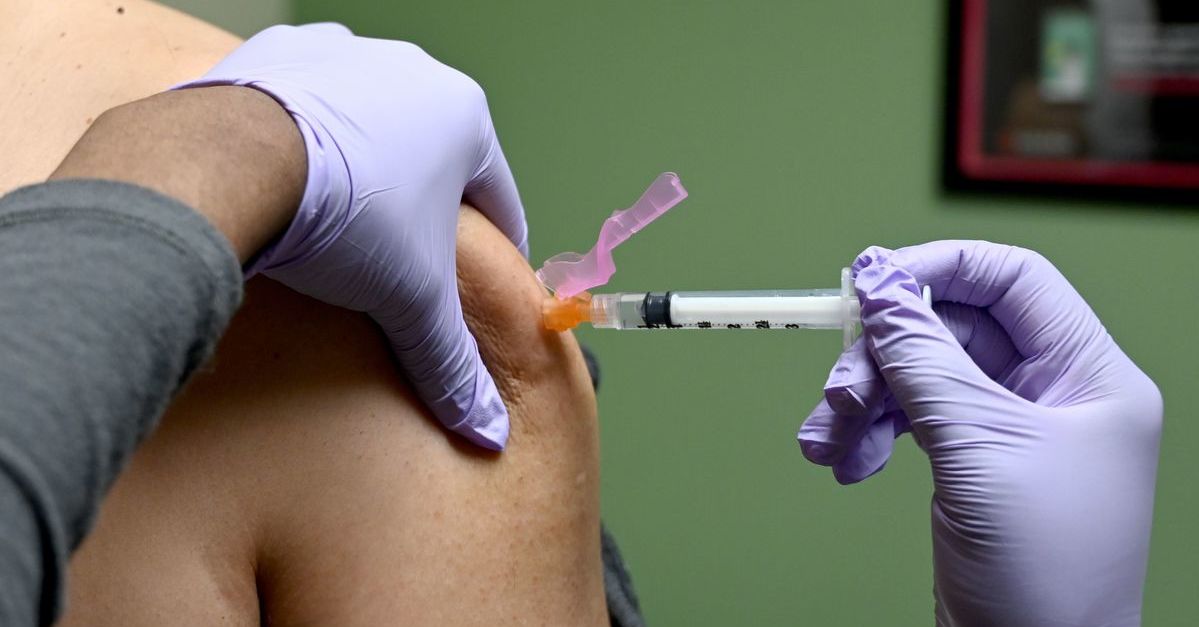
A husband and wife who worked for “a major American pharmaceutical company” as research scientists have pleaded guilty to what the U.S. Department of Justice characterized as “criminal charges stemming from their efforts to gather confidential mRNA research from that company to advance the husband’s competing laboratory research in China.”
According to a DOJ press release, Chenyan Wu, 58, and Lianchun Chen, 51, both of San Diego, admitted to separate counts. Wu pleaded guilty to smuggling goods (in violation of 18 U.S.C. § 545), a crime which could carry a maximum 20-year sentence and a quarter-million-dollar fine. Chen admitted to computer fraud (in violation of 18 U.S.C. § 1030(a)(2)(C)), which could result in a one-year sentence and the same potential fine.
“In 2010, Wu moved to China, and in 2012, he opened a laboratory there, which he named TheraMab,” the DOJ said. “TheraMab focused on mRNA vaccine research.”
Chen remained in the United States and continued working for the “major” pharmaceutical company identified in federal court papers only as Company A. That employment lasted from 2012 to 2021 and “focused on mRNA vaccines.” (Court documents said the work was focused on “mRNA cancer vaccine research.”)
The DOJ continued:
According to her plea agreement, from as early as November 2013, through at least June 2018, Chen repeatedly accessed Company A computers and copied confidential Company A materials. She knew she was not allowed to copy these materials, much less provide them to an individual outside the company. Chen emailed those confidential Company A materials to her husband in China over her personal Hotmail account. These confidential Company A materials included PowerPoints and Word documents with DNA and mRNA sequencing data, marked “[Company A] Confidential” and “from [Company A] Vaccine Research & Development.” By 2013, Wu was no longer employed by Company A. He had started TheraMab, a competing laboratory in China focused on mRNA research.
In February 2021, Wu shut down TheraMab in China and attempted to move his laboratory to the United States. He packed up its contents into five suitcases. On May 8, 2021, Wu arrived with the five suitcases at Seattle-Tacoma International Airport on Delta Flight 288, originating in Shanghai, China. He planned to transit through Seattle and had a flight home to San Diego later that day.
The DOJ said the scheme unraveled when Wu failed to declare “chemical and biological samples” to customs. His baggage was laden with “medical/biological equipment” and “research documentation,” including “700 to 1,000 unlabeled centrifuge tubes . . . which appeared to contain proteins and multiple containers of lab chemicals.” Some of the bottles contained warnings: “harmful if swallowed,” “toxic if inhaled,” and “fatal if inhaled.” The bottles contained substances such as imidazole, nickel sulfate, ethidium bromide, ammonium persulfate and chloroform — all of which the DOJ said were “hazardous materials under U.S. Department of Transportation regulations and must be reported upon entry into the United States.”
When interviewed by the FBI, Wu admitted he decided to “take a gamble” by bringing the material into the U.S. through his luggage, the DOJ said.
Sentencing for Chen is scheduled for Aug. 11. Wu’s sentencing is set for the next day, Aug. 12.
“These are serious computer fraud and smuggling crimes,” said U.S. Attorney Randy Grossman in a statement. “One defendant failed to protect her employer’s confidential and important research, and instead used it to her and her husband’s advantage. Compounding the harm, the other defendant put travelers in harm’s way by illegally transporting his laboratory’s hazardous chemicals back to the United States.”
“The defendants used their placement and access to obtain and illegally share confidential lab research for their own benefit,” said FBI Special Agent in Charge Stacey Moy. “Their attempt to smuggle hazardous material into the United States was thankfully foiled by Customs and Border Protection upon entry.”
A federal court docket does not yet contain public copies of the guilty pleas filed by either defendant. It does, however, say that location monitoring services were cancelled and that the defendants posted a $250,000 property surety bond to ensure their appearance at a forthcoming hearing.
Some of the court papers are below:
[Photo by EVA HAMBACH/AFP via Getty Images]
Have a tip we should know? [email protected]